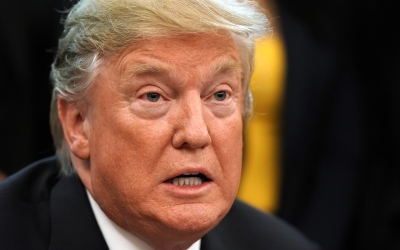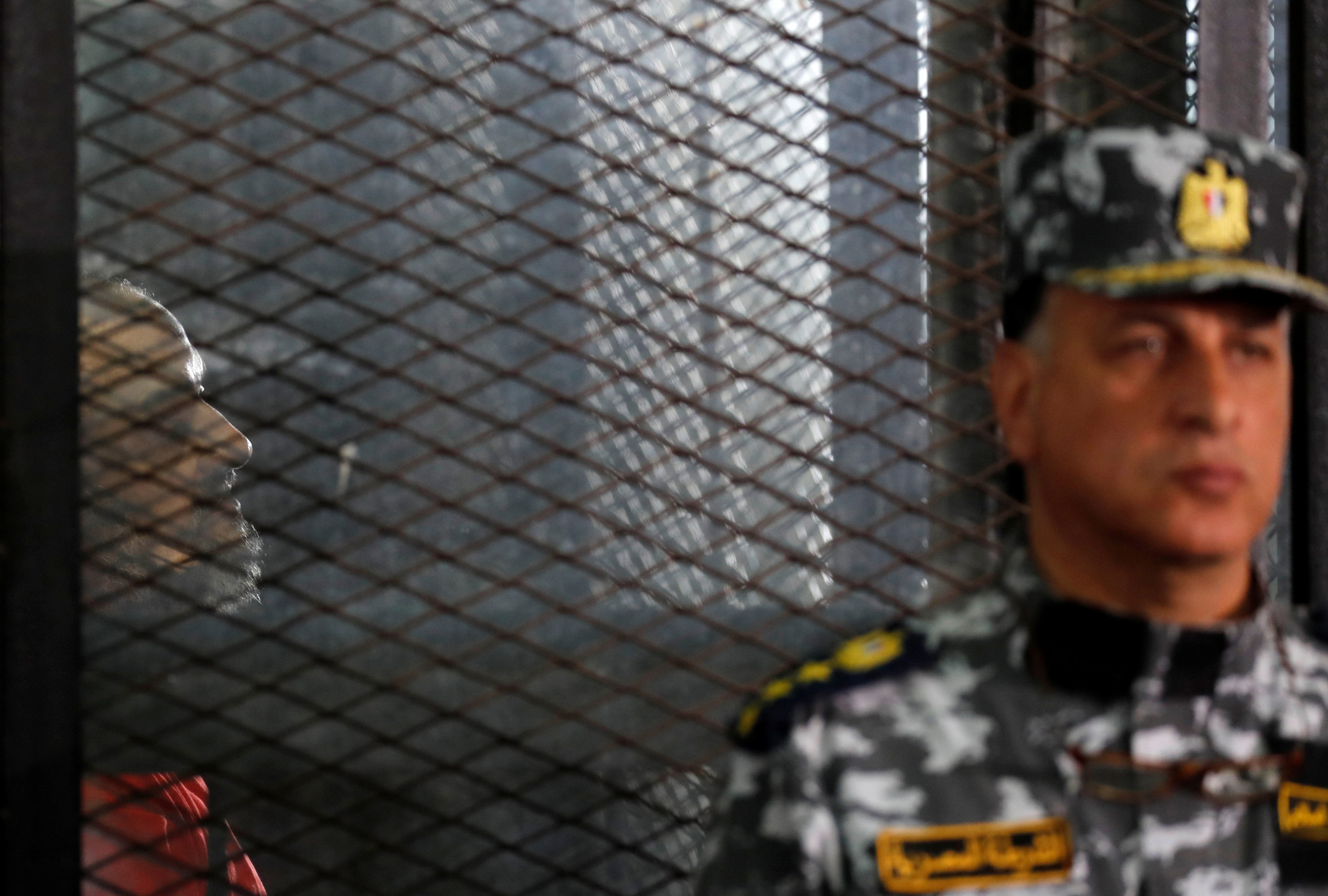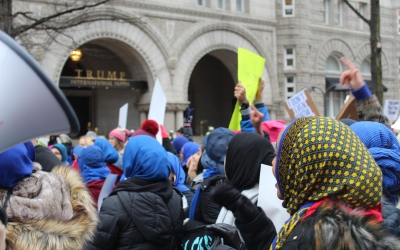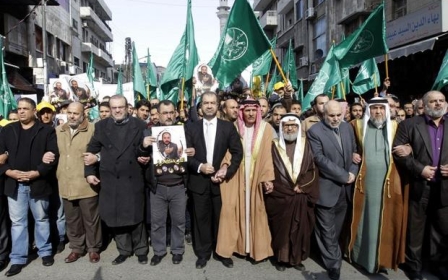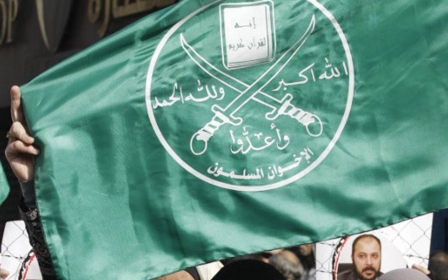Trump's Muslim Brotherhood ban: 'A declaration of war on non-violent Islamists'
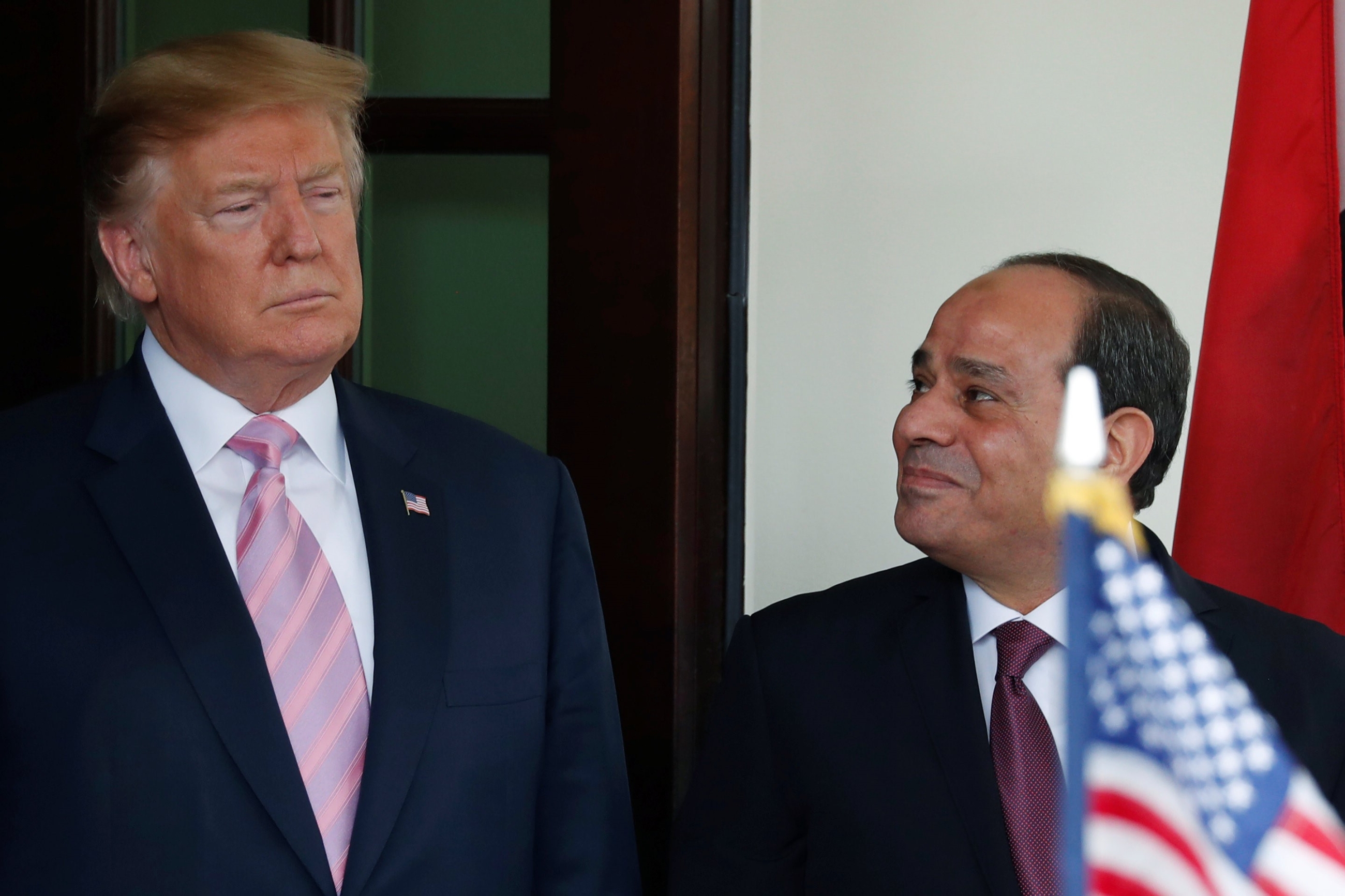
On Tuesday, the White House confirmed that the Trump administration is working to designate the Muslim Brotherhood a foreign terrorist organisation, following Egyptian President Abdel Fatteh el-Sisi’s visit to Washington in early April.
The administration and other members of the Republican Party have in the past discussed designating the Brotherhood a terrorist group, but it seems that the push from President Sisi has put the matter at the forefront of Trump’s agenda.
Pressure from Sisi, likely compounded by that from Saudi Crown Prince Mohammad bin Salman and Abu Dhabi's Mohammad bin Zayed, both of whom have close relationships with Trump's son in law Jared Kushner, has built up over the past months to such an extent that Trump is now considering the decision.
This discussion comes on the heels of the White House’s designation of Iran’s Revolutionary Guard Corps (IRGC) as a terrorist group last month, which marked the first time the White House had designated part of a government a terrorist entity.
No coherent body
The Muslim Brotherhood, established in 1928, initially emerged in Egypt and sought to emphasise Egypt's Islamic identity, particularly in the face of British occupation
Its early activities focused primarily on grassroots education and social programmes, with its bylaws even expressly prohibiting direct political action until 1934 and with its ideology lacking prescriptive recommendations on how to govern.
Instead, the Brotherhood has essentially pushed an agenda of maintaining the role of Islam in society and politics despite modernisation.
While there is today no international governing board of the Muslim Brotherhood, as national groups have become increasingly locally focused, the organisation as a whole very clearly renounced violence in the 1960s through the tract Preachers Not Judges attributed to then supreme guide Hasan al-Hudaybi.
Since that time, and particularly since Brotherhood branches took different decisions on the how to resolve the Iraqi invasion of Kuwait, the Brotherhood has failed to comprise one coherent international body.
Indeed, the agendas of the Kuwaiti and Sudanese branches of the Muslim Brotherhood look quite different, being shaped by local circumstances largely to mobilise voters.
For instance, the Kuwaiti agenda concerns changes to electoral law specific to that country, as well as issues linked to the issue of bidun (stateless people in Kuwait and the Gulf region) and the stripping of citizenship for political reasons – issues that do not necessarily cross borders or reflect solely an Islamist ideology.
Further, violent jihadist groups like Al Qaeda have routinely criticised the organisation for taking part in political life rather than fighting the political order with violence, with head of Al Qaeda Ayman al-Zawahiri, the most famous defector of the Brotherhood, writing in detail about his criticism of the Brotherhood in his book The Bitter Harvest.
Trump's autocratic allies
President Trump and his Middle Eastern allies, however, continue to conflate the Muslim Brotherhood with violent jihadist organisations. Indeed, the Sisi government in Egypt declared the Brotherhood a terrorist group in 2013 after the overthrow of the elected Muslim Brotherhood president.
Saudi Arabia and the United Arab Emirates (UAE) followed suit in 2014. Notably, the UAE, on the same list of "terrorist" organisations, also included the Council on American-Islamic Relations (CAIR) and the UK-based Islamic research group, the Cordoba Foundation.
Trump and his Middle Eastern allies continue to conflate the Muslim Brotherhood with violent jihadist organisations
It is no coincidence that Trump’s allies hope to dismiss the Brotherhood as a terrorist organisation. Indeed, in Egypt, Saudi Arabia, and the UAE, Brotherhood-linked movements have been connected to efforts to implement political reforms, sometimes in collaboration with non-Islamist groups, thus making the organisations more politically problematic for their leaders.
Rather surprisingly, however, Bahrain, an ally of Saudi Arabia and the UAE in its rift with Qatar, retains a politically active Muslim Brotherhood branch, whose social organisation was until 2013 under the leadership of a member of the al-Khalifa ruling family.
A designation of the Muslim Brotherhood as a terrorist group could therefore be problematic for the Bahraini leadership, which has tolerated the local branch of the Brotherhood, largely due to the fact that the primary opposition movements in that state are Shia.
That this branch of the Brotherhood is loyalist further demonstrates the extent to which Brotherhood agendas are locally shaped, making it difficult to define any single Muslim Brotherhood.
No effective ban
As Will McCants and Benjamin Wittes pointed out in a 2017 piece, the Muslim Brotherhood differs too substantially across national contexts to be banned effectively, and so banning the group would be akin to restricting an ideology, which is, of course, illegal.
Nathan Brown and Michelle Dunne further explain the potential fallout of such a designation: "The greatest damage might be in the realm of public diplomacy, as using a broad brush to paint all Muslim Brotherhood organisations as terrorists would be understood by many Muslims around the world as a declaration of war against non-violent political Islamists - and indeed against Islam itself."
The Brotherhood differs too substantially across national contexts to be banned effectively, and so banning the group would be akin to restricting an ideology
Andrew March additionally points out that designating the Brotherhood a terrorist group would put academic researchers at risk of being prosecuted for their "material support" of terrorism.
Indeed, if the Brotherhood is officially designated a foreign terrorist organisation, its files could potentially be subpoenaed, and interviews and other material from Brotherhood members could be skewed as material support.
March explains that, because the scope of “material support for terrorism” has broadened over the past decade as a means of fighting terrorist groups, even criminalising “expert advice or assistance,” a designation of the Brotherhood could potentially threaten independent academics and journalists.
Still, the Trump administration seems intent on pursuing a terrorist designation for the Muslim Brotherhood – largely due to encouragement from those states that have become its major allies: Egypt, Saudi Arabia and the UAE.
Indeed, former Saudi ambassador the United States, Nawaf Obaid, posited, in an August 2018 article in Foreign Policy, that Qatar’s links to the Muslim Brotherhood are more dangerous than its ties to Iran, while Emirati Foreign Minister Anwar Gargash dubbed the Brotherhood “the gateway drug to jihadism of all kinds".
MB's political capital
For his part Mohammad bin Zayed, the crown prince of Abu Dhabi, who effectively manages national policy in the UAE, has long been suspicious of the political appeal of the Brotherhood locally.
As noted in a US diplomatic cable from 2004: "In their diplomatic activities, Sheikh Mohammed bin Zayed [Abu Dhabi Crown Prince] and his brothers Hamdan [Deputy Prime Minister] and Hazza [National Security Adviser] rarely fail to tell high-level USG interlocutors about the threat to stability posed by the ‘Muslim Brotherhood,’ their generic term for extremists."
Trump’s allies, then, are acutely aware of the political capital held by Brotherhood movements and have used claims about the Brotherhood’s links to terrorism to dismiss local Brotherhood branches’ efforts at effecting domestic political changes.
Currently, Muslim Brotherhood affiliates or linked groups contest seats in parliament in Algeria, Bahrain, Iraq, Jordan, Lebanon, Kuwait, Morocco, Palestine, Sudan, Tunisia and Turkey.
Widespread fallout
While these groups are essentially localised, with agendas focused on domestic issues rather than a single specific and prescriptive globally held ideology, designating the Egyptian Muslim Brotherhood as a terrorist group would be hugely politically problematic.
Further, a large number of members of the Egyptian Brotherhood have found refuge in Turkey, under the AKP leadership, meaning that the designation could fuel further confrontation between Erdogan and Trump.
For its part, the United Kingdom, apparently under pressure from the Emirati government, conducted a review of the Muslim Brotherhood in 2015.
It concluded that “for the most part, the Muslim Brotherhood have preferred non-violent incremental change,” and that the group was primarily committed to political rather than violent engagement.
It is unclear whether the Trump administration will heed, or even attempt to engage, the opinions of researchers when discussing the Muslim Brotherhood designation or whether it will take its allies at their word about the group’s terrorist links.
If President Trump attempts to ban the organisation, the fallout will be widespread, with major regional and domestic implications.
The views expressed in this article belong to the author and do not necessarily reflect the editorial policy of Middle East Eye.
Middle East Eye propose une couverture et une analyse indépendantes et incomparables du Moyen-Orient, de l’Afrique du Nord et d’autres régions du monde. Pour en savoir plus sur la reprise de ce contenu et les frais qui s’appliquent, veuillez remplir ce formulaire [en anglais]. Pour en savoir plus sur MEE, cliquez ici [en anglais].



